Former executive restores health through dedicated training regimen
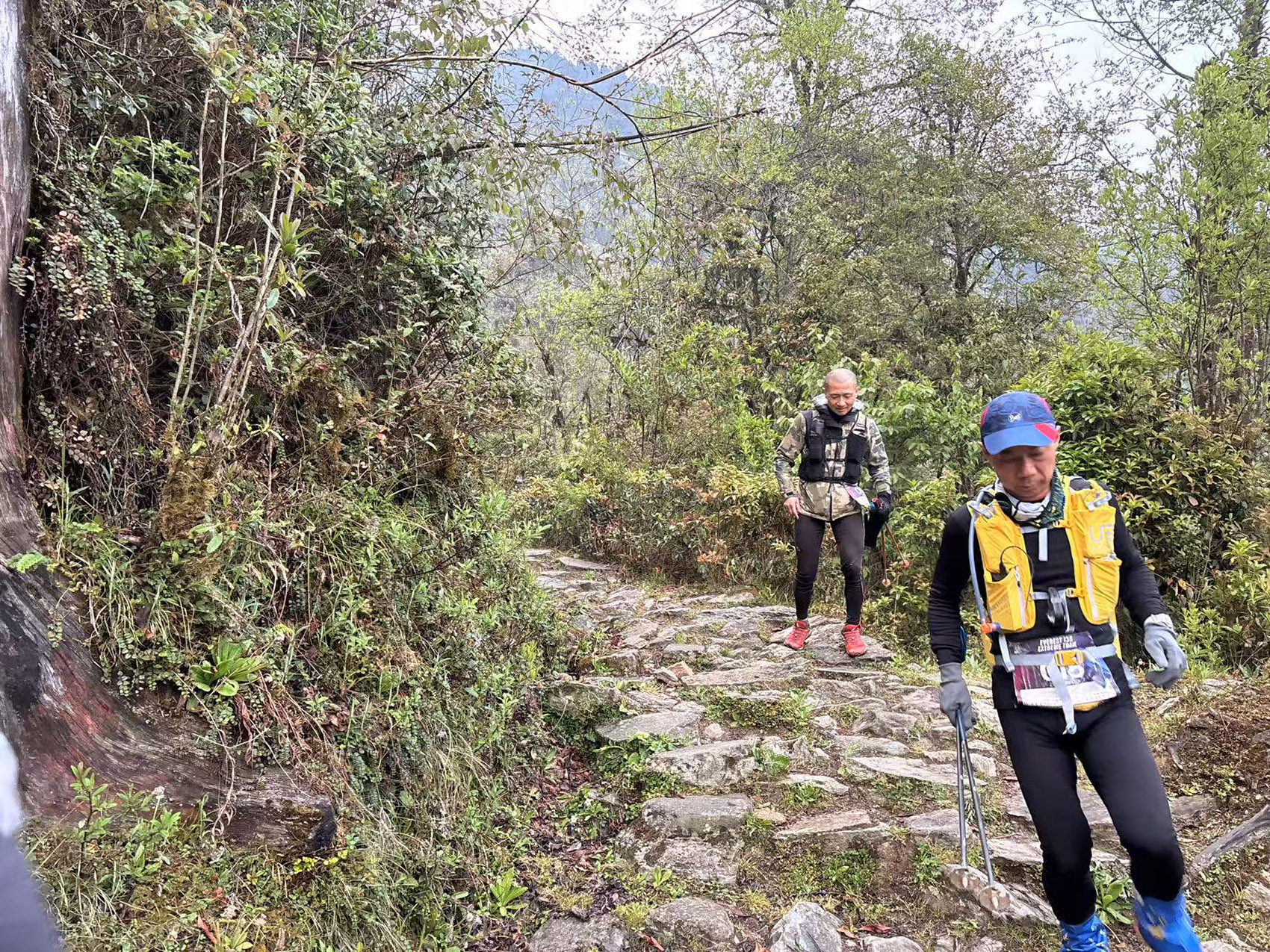
Zhan Jiaqin, a 61-year-old retired corporate executive from Hunan province, has etched his name in endurance sports history by conquering the 2024 Everest 135, or Everest Extreme — a 231.2-kilometer race through a section of Mount Qomolangma in Nepal, dubbed one of the planet's toughest high-altitude races.
With a staggering cumulative elevation gain of 19,709 meters, temperatures swinging between 25 C and — 20 C, and a peak altitude of 5,517 meters, the six-day event tested human limits. Zhan, finishing in 130 hours and 10 minutes, became its oldest amateur participant to complete the race.
Zhan was born in Pingjiang county, Hunan in 1964. He graduated from Tongji University in Shanghai in the 1980s and worked at a State-owned construction company in Changsha, the provincial capital, for 19 years before becoming the general manager of a local private real estate company.
READ MORE: Young climber finds 'pure happiness' at top of world
His running journey, however, began not on mountain trails but in a moment of humble self-reckoning.
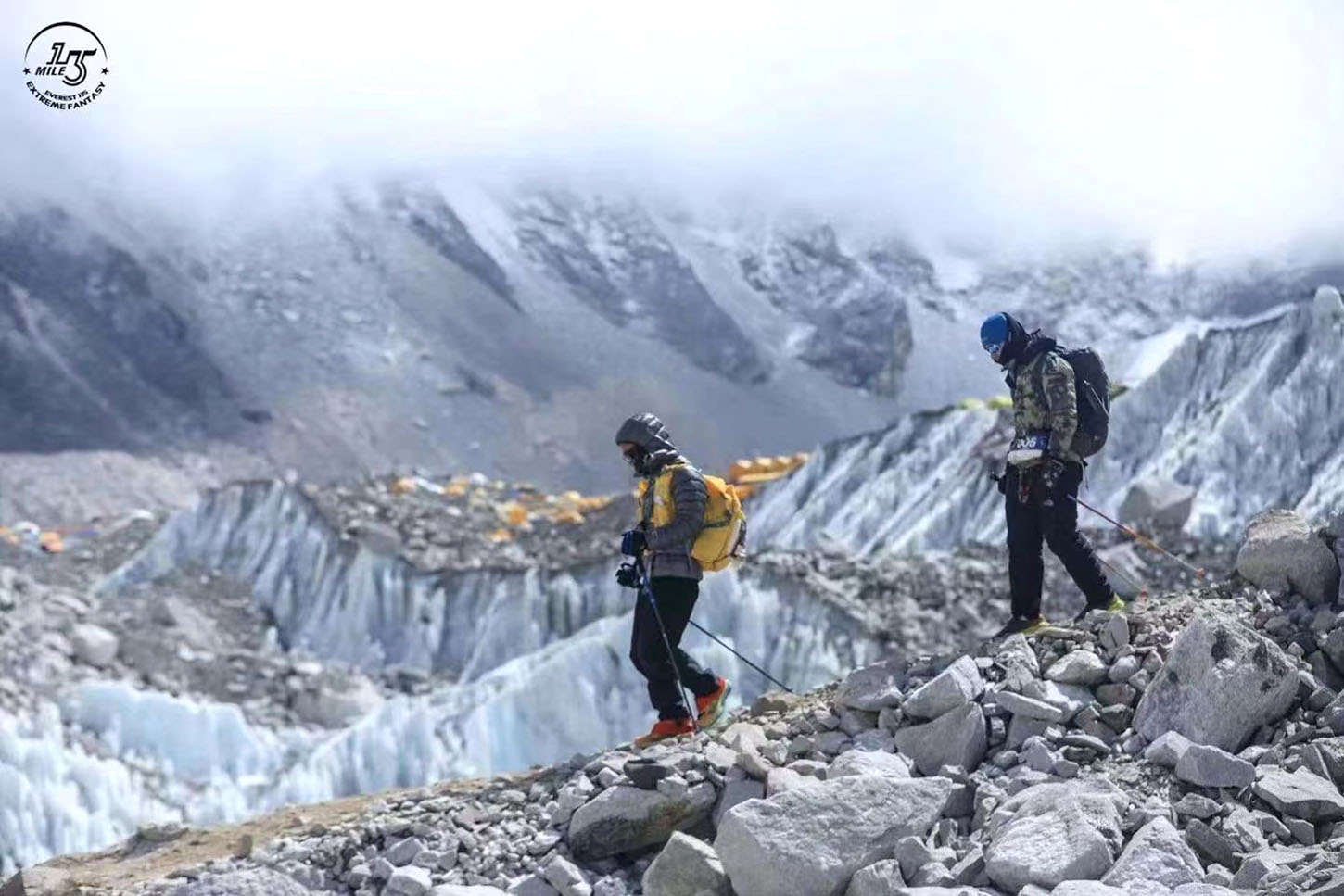
In 2013, at age 49, Zhan's life took a pivotal turn during a company hiking trip in a remote forest. Struggling to keep pace with colleagues, he faced a stark reality: his deteriorating health could no longer be ignored.
Determined to change, he embarked on a rigorous fitness regimen, rising at 4:30 am daily for two-hour runs before work, later incorporating gym sessions to build strength. "I started with 2 to 3 kilometers and couldn't even finish that," he said.
Progress was slow but deliberate. By 2016, after three years of disciplined training and guidance from professional coaches, he completed his first marathon in Changsha in 4 hours and 47 minutes. Refining his strategy — balancing speed work, hill repeats and recovery — he eventually slashed his marathon time to 3 hours and 23 minutes at the 2020 Shanghai Marathon. He has run more than 30 marathons to date.
Trail running entered Zhan's life in 2018 through a casual invitation to a 55-km race in Hunan's Langshan Mountains. Naively assuming it mirrored road marathons, he underestimated the technical demands: uneven terrain, navigation challenges and sleep deprivation. "It took me 13 grueling hours," he recalled.
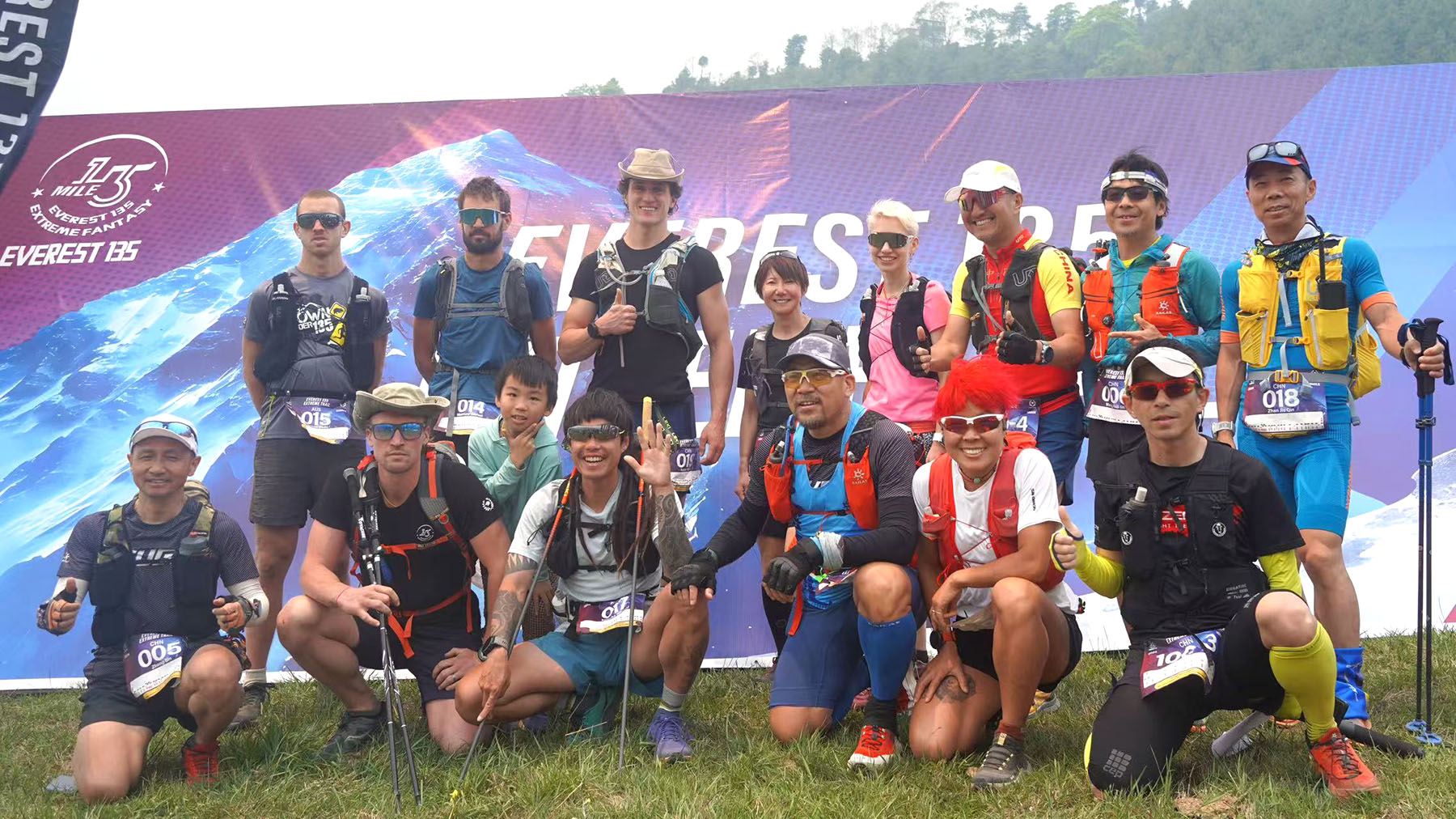
Yet the experience ignited a passion. He began tackling longer distances, including the Xizang autonomous region's Nyingchi 100 km, Wumeng Mountain's 330 km in Yunnan province, and Chongli's 192 km in Hebei province, where he battled rain, freezing temperatures and scorching sun over 45 hours.
To prepare, Zhan adopted a science-backed approach: morning 20-km runs, afternoon hill repeats on Yuelu Mountain in Changsha with weighted packs, and meticulous study of navigation tools.
"Blindly running won't work. You need strategy," he said. "More importantly, no matter which event you participate in, once you feel uncomfortable, you need to contact the staff quickly."
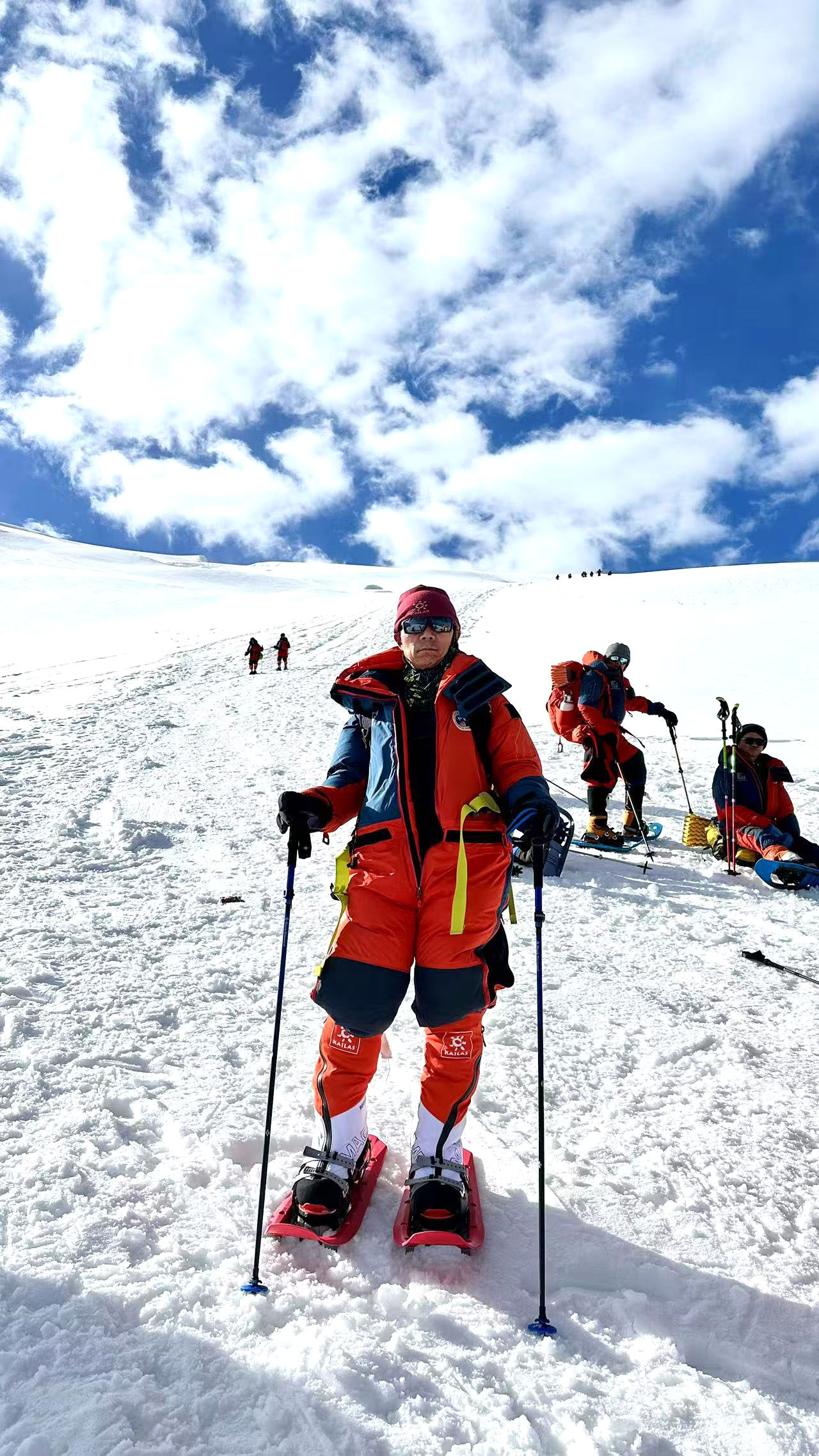
The Everest 135, however, demanded unprecedented rigor. The race — open only to athletes with 7,000-meter summit experience and rigorous medical clearance — required signing a "life-and-death waiver". Zhan, the sole amateur in the 135-mile category, faced a field of elite international competitors. Armed with dual satellite navigation watches, a phone and backup power banks, he navigated desolate trails where "not a blade of grass grew".
"I focused only on reaching the next aid station, even if it was 10 km away," he said. "There was also great mental stress and especially immense loneliness."
Crossing the finish line, swollen-faced and tearful, he remarked, "I do not remember the last time I cried, but the tears this time will be ingrained in my mind forever."
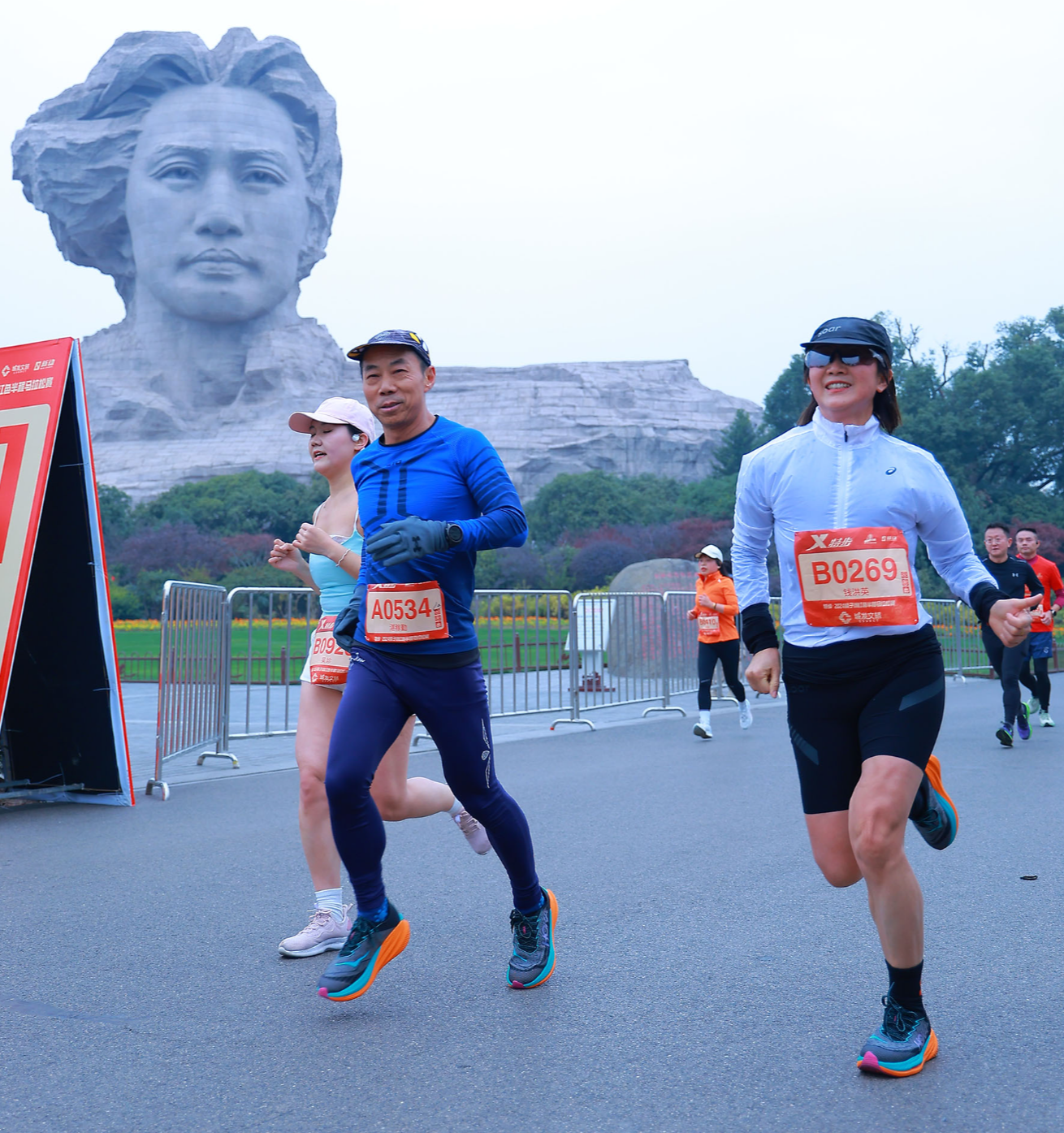
Running reshaped Zhan's life beyond physical feats. Once prone to late-night drinking and erratic habits, he now adheres to a monastic routine: bedtime at 10 pm and running 300-400 km monthly paired with gym sessions.
His health metrics — a resting heart rate of 50 bpm, blood pressure of 110/70 mm Hg — reflect this transformation.
His wife and daughter, initially skeptical, joined him. His wife completed her first 116-km race in Yangzhou, Jiangsu province in 23 hours, while the family collectively finished the Tengchong Marathon in Yunnan province.
ALSO READ: New frontier of youth travel
Zhan's influence extends beyond his household. He mentors runners such as Bai Liqin, a 38-year-old novice he guided to a sixth-place finish in her debut 100-km race. "He taught me to train smart, not just hard," Bai said.
Now retired, Zhan eyes new horizons: the 400-km "800 Liusha" across the Xinjiang Uygur autonomous region's deserts to Dunhuang in Gansu province, and other international races.
Yet his ultimate ambition transcends sport: "I want to inspire people to chase dreams at any age. I've reached Qomolangma's base — next, I'll stand on its summit."
Zhu Youfang contributed to this story.


